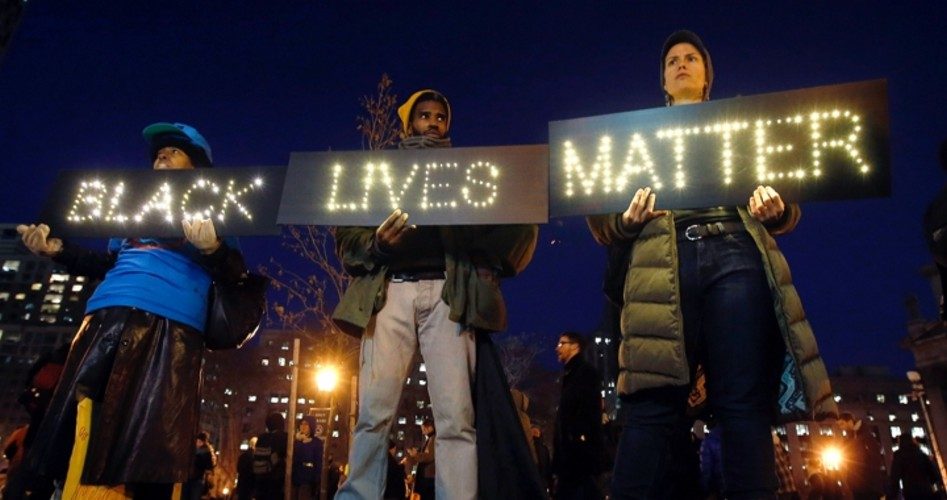
Despite the controversial agenda and violent nature of the Black Lives Matter (BLM) movement, teachers in Philadelphia are participating in a BLM week for their students, provoking backlash from teachers and critics.
The Caucus of Working Educators has asked teachers to participate in the “Black Lives Matter Week of Action,” beginning today. For the entire week, students will be immersed in all things pertaining to race, including coloring book activities and science lessons on the biology of skin color. Teachers are also encouraged to wear BLM materials in support of the movement during the week of action.
Philly.com reports that the goal is to teach themes based on the 13 tenets of the Black Lives Matter movement — diversity, restorative justice, unapologetically black, globalism, collective value, transgender affirming, black women, black villages, empathy, black families, queer-affirming, loving engagement, and intergenerational.
“This is a critical issue of our time — in our society, but also in our students’ lives,” said Charlie McGeehan, an English and history teacher in Philadelphia and member of the Caucus of Working Educators.
Claiming he does not believe the BLM movement to be anti-police, he goes on to say, “We have to validate our students’ experiences. Many of my students have had negative experiences with police officers. To ignore that is to deny their reality in a way that doesn’t make sense.”
But while educators such as McGeehan believe it is important to incorporate the BLM movement into lessons, others, such as local English teacher Christopher Paslay, contend that it will only serve to further divide students. Paslay asserts that while he supports equality for all, he does not support the Black Lives Matter movement and does not believe there is a place for it in the classroom. “I don’t think kids should be taught that Western society is perpetrating a war on black people,” he said.
Caucus member Tamara Anderson, appearing on Talk Radio 1210 WPHT, claims that the purpose of the BLM Week of Action is to “create a space for introspection and dialogue, deeper connections between educators, parents, students and community organizations that stand in support with national organizing supporting Black Lives Matter and to empower students and student groups to play a leading role in this week and moving forward.”
But despite the flowery rhetoric, Black Lives Matter is a highly political movement that encourages the disruption of the “nuclear family” structure, the elimination of charter schools, taxpayer-funded reparations for black people, free education and healthcare, voting rights for illegal immigrants and other non-citizen residents, the redistribution of wealth, and many more radical Marxist and un-American goals.
To many critics, it is disgraceful for taxpayer dollars to be used, even indirectly, for students to be indoctrinated by a movement that is anti-American, anti-white, and anti-police.
Blue Lives Matter, a counter-group that encourages support of law enforcement, asserts that there are better uses of resources than a week devoted to the BLM movement: “There are plenty of black leaders and organizations that are role models and examples of leadership that the youth of today need. Not this anti-police group.”
The Zionist Organization of America (ZOA) called on the Caucus of Working Educators to stop the Week of Action, asserting it violates the district’s policy against political activities on school property.
“Black Lives Matter is a political movement,” ZOA leaders wrote in a letter to the School Reform Commission. “District policies specifically prohibit political activities on school property and on school time.”
And critics of the BLM movement as a whole opine that it is predicated on the lie that police officers are the biggest threat to black people, wholly ignoring the statistical evidence that in fact proves it is black people who are the greatest threat to other black people.
But despite the backlash against the Week of Action, organizers forged ahead, claiming that discussions of race cannot be avoided because “issues of race are already present in your classroom.”
“You can raise awareness about this omnipresent aspect of our society without triggering conflict or anxiety in your students,” they claim.
While acknowledging that some students and parents may be uncomfortable with the BLM movement, Anderson asserts that the students “need to have these difficult conversations around bias.”
H. Lee Whack Jr., a spokesman for the Philadelphia school district, said that while the week of action is not part of the district’s curriculum, it is highly encouraged.
“The district encourages teachers to responsibly engage students around pertinent issues to develop critical thinking skills and a respect for the exchange of ideas,” Whack said in a statement. “The district regularly encourages schools to look to current-event topics for appropriate teaching content that is also aligned with grade-appropriate standards,” the statement continued.
As the Week of Action is voluntary, it’s not clear how many teachers will actually be participating.
Heat Street notes this is not the first time teachers have incorporated the BLM movement into lesson plans. Seattle teachers did something similar in October of last year, in addition to attending a Black Lives Matter rally.
“This is a consciousness-raising event,” wrote educators from Seattle’s Washington Middle School and the group Social Equality Educators. “School is part of society, students and staff are part of society, and so what is happening within our society deserves and demands our attention. This is a ‘teachable moment’ for the Seattle Public School community.”
In fact, according to one of the Philadelphia organizers, it was the action in Seattle that inspired the BLM Week of Action.
Similarly, teachers and librarians in the San Francisco Unified School District compiled resources online related to the Black Lives matter movement for the 2014-15 school year, including grand jury documents, videos and graphics, readings, and lesson plans and activities for students of all ages.
Photo: AP Images


